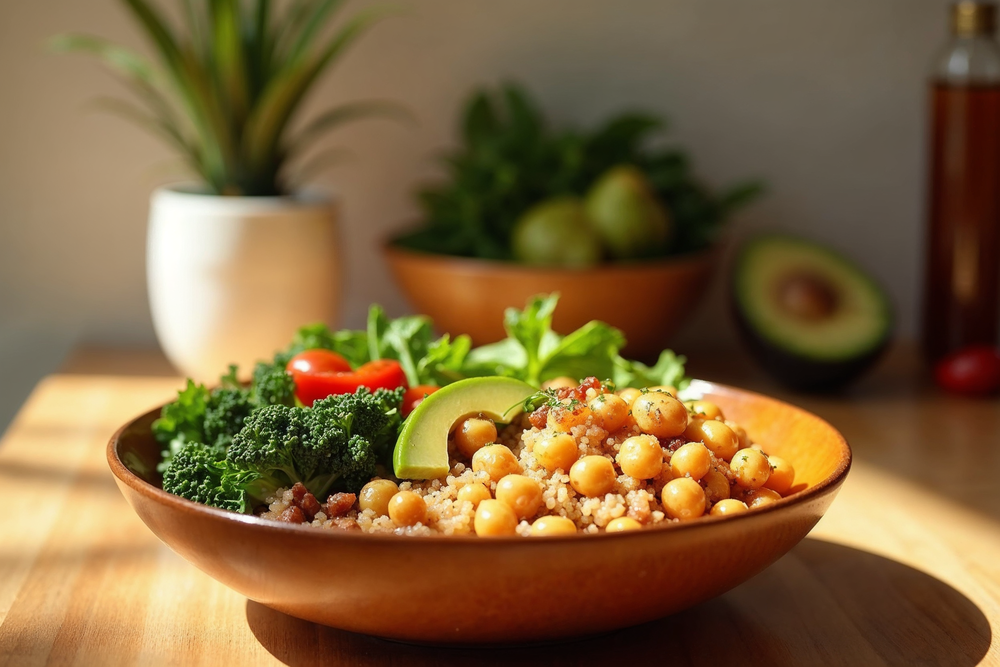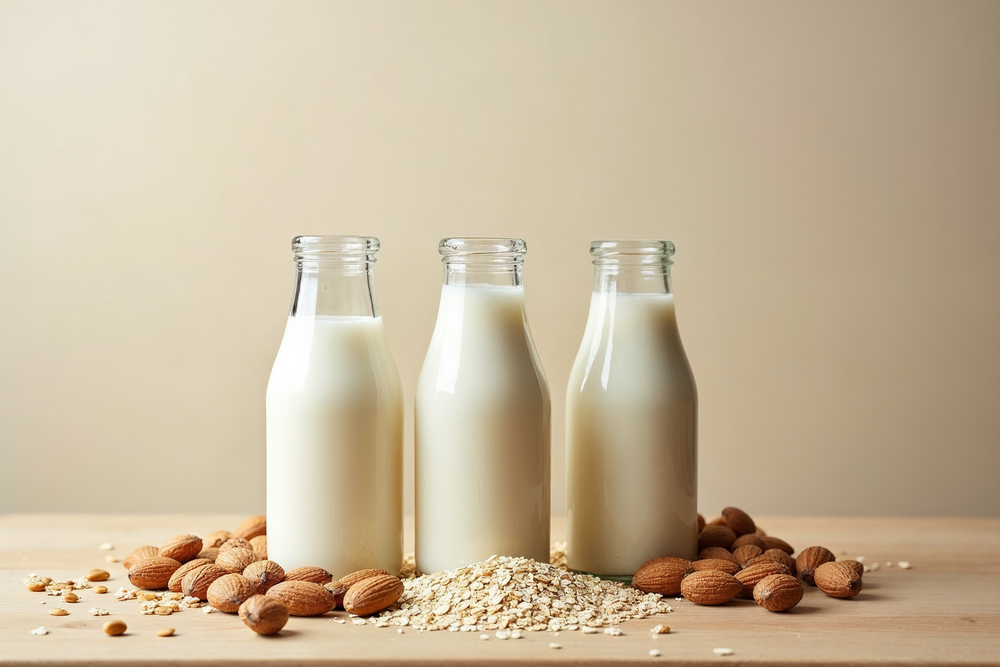Plant-Based Diets Made Easy: Simple Swaps for Beginners
Mia Santos
2025-10-31
6 min read

Making the switch to a plant-based diet can feel overwhelming at first. With so many new ingredients, recipes, and nutrition considerations, it’s easy to get stuck in the “I don’t know where to start” phase. But the truth is, adopting a plant-based lifestyle doesn’t have to be complicated or restrictive. With a few simple swaps and small adjustments, you can enjoy delicious meals while supporting your health, the environment, and animal welfare. Here’s how beginners can make plant-based diets easy, enjoyable, and sustainable.
Why Consider a Plant-Based Diet?
Before diving into swaps and tips, it’s important to understand why many people choose plant-based eating. A diet rich in fruits, vegetables, legumes, nuts, seeds, and whole grains is associated with numerous health benefits. These include better heart health, improved digestion, weight management, and a reduced risk of chronic diseases such as diabetes and certain cancers. Beyond personal health, plant-based eating is also environmentally friendly—it reduces greenhouse gas emissions and conserves water and land resources. The good news for beginners is that plant-based diets are flexible. You don’t have to go “all or nothing.” Many people start by incorporating a few plant-based meals each week and gradually increase their plant-forward choices. The key is simplicity and consistency.
Simple Swaps to Get Started
One of the easiest ways to transition to a plant-based diet is to focus on simple ingredient swaps. Here are some practical examples:
Swap Dairy Milk for Plant-Based Alternatives
Instead of cow’s milk, try almond, oat, soy, or coconut milk. Oat milk, in particular, has become popular for its creamy texture and naturally sweet flavor. These plant-based milks can be used in coffee, smoothies, baking, or even poured over cereal. For beginners, keep an eye on fortified options to ensure you’re getting enough calcium and vitamin B12.
Replace Meat with Legumes
Beans, lentils, chickpeas, and peas are excellent sources of plant-based protein and fiber. You can replace ground beef in tacos with black beans or lentils, make chickpea “tuna” salad, or toss kidney beans into chili. Lentils cook quickly and are versatile for soups, stews, or pasta sauces. By incorporating legumes, you’ll not only reduce meat consumption but also improve gut health and stay full longer.
Experiment with Plant-Based Proteins
To mimic the texture of meat, try tofu, tempeh, or seitan. Tofu absorbs flavors beautifully and can be stir-fried, baked, or blended into creamy sauces. Tempeh has a nutty flavor and works well in sandwiches or salads. Seitan, made from wheat gluten, is perfect for those who enjoy a meat-like chewiness. These swaps make it easier for beginners to feel satisfied without missing meat.
Rethink Snacks
Switching to plant-based doesn’t mean you have to give up your favorite snacks. Nuts, seeds, and dried fruit make for convenient and nutrient-dense options. Hummus with veggie sticks or roasted chickpeas can replace chips and dips. Plant-based yogurt with granola and berries is a satisfying alternative to traditional dairy yogurt. Over time, these small swaps help retrain your taste buds and cravings.
Opt for Whole Grains
Instead of refined grains like white rice or pasta, choose quinoa, brown rice, barley, or whole-wheat pasta. Whole grains provide fiber, vitamins, and minerals, keeping you energized and full throughout the day. They’re also incredibly versatile—you can make grain bowls, stir-fries, or even breakfast porridge.
Tips for Easy Meal Prep
Transitioning to a plant-based diet is smoother with some simple meal prep strategies.

Batch Cooking
Cooking beans, lentils, or grains in bulk saves time during the week. Store them in airtight containers to mix into salads, bowls, or wraps. You’ll be less tempted to revert to non-plant-based convenience foods when healthy options are ready to go.
Embrace Frozen Veggies and Fruits
Frozen produce is often just as nutritious as fresh and can reduce food waste. They’re perfect for quick stir-fries, soups, or smoothies. Plus, they save time when you don’t feel like chopping fresh vegetables.
Keep a Pantry of Plant-Based Staples
Having essential ingredients on hand makes it easier to whip up meals. Stock canned beans, lentils, tomatoes, whole grains, nuts, seeds, and plant-based condiments like tahini or nutritional yeast. With these basics, you can create countless meals without feeling restricted.
Try Simple Recipes
You don’t need complicated recipes to enjoy plant-based meals. Start with easy staples:
Veggie Stir-Fry: Sauté mixed vegetables, tofu, and soy sauce over brown rice.
Chickpea Salad Sandwich: Mix chickpeas, vegan mayo, mustard, and spices.
Lentil Soup: Simmer lentils, carrots, celery, and tomatoes with herbs.
Overnight Oats: Combine oats, plant-based milk, chia seeds, and fruit for a quick breakfast.
These recipes are beginner-friendly, delicious, and require minimal ingredients.
Make It Social and Fun
Adopting a plant-based diet doesn’t have to be isolating. Try cooking plant-based meals with friends or family, or explore local plant-based restaurants. Social support can make the transition more enjoyable and help you discover new flavors. You might even inspire others to try plant-forward eating!
Focus on Progress, Not Perfection
The most important tip for beginners is to focus on progress rather than perfection. You don’t have to go fully vegan overnight. Every plant-based meal you enjoy is a step in the right direction. Experiment with swaps, explore new ingredients, and listen to your body. Over time, plant-based eating will feel natural and sustainable. Starting a plant-based diet doesn’t have to be daunting. With a few simple swaps—like plant-based milk, legumes for meat, tofu or tempeh, whole grains, and nutrient-rich snacks—you can enjoy satisfying meals that support your health and the environment. Combine these swaps with easy meal prep, basic pantry staples, and a focus on progress over perfection, and you’ll find the transition to a plant-based lifestyle far easier than you imagined. Remember, the journey is about experimenting, discovering new flavors, and finding what works for your lifestyle. Every small change counts, and soon you’ll notice the benefits of a plant-based diet for your body, your mind, and the planet.



